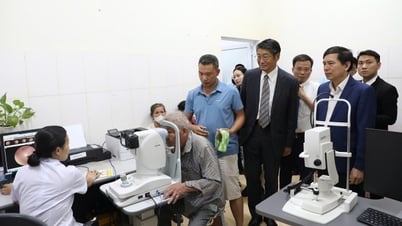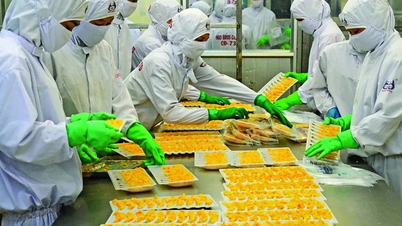According to Japanese medical experts, the impact of underweight babies can also affect the future of future generations.
 |
| Tohoku University in Sendai, Miyagi Prefecture, Japan. (Source: Kyodo) |
In Japan, a growing number of babies are being born weighing less than 2.5 kg, putting them at higher and unexplained risk of developing lifestyle-related diseases such as high blood pressure and diabetes as adults.
A recent study by a team of Japanese scientists has helped pave the way for the development of treatments to reduce health problems such as kidney disorders in low birth weight babies, while also aiming to break the intergenerational cycle of related diseases.
In research led by Tohoku University, the team developed a method to create a mouse that was underweight at birth and developed kidney disorders and high blood pressure as it aged.
The team also found that the same mice that were born with low birth weight later in life had a deficiency in the liver and placenta that support fetal development. However, giving the pregnant mice a special drug that dilates blood vessels increased the weight of the fetus and limited the risk of high blood pressure later in life.
In Japan, around 10% of babies are born with low birth weight, and this number is rising as more women are having children later in life. The impact of low birth weight can also affect the future of the next generation, said Emiko Sato, associate professor of clinical medicine, who led the study. The team hopes the research will help develop treatments to break this negative cycle.
The study was published in the American journal iScience .
Source






![[Photo] Prime Minister Pham Minh Chinh chairs conference on anti-smuggling, trade fraud, and counterfeit goods](https://vphoto.vietnam.vn/thumb/1200x675/vietnam/resource/IMAGE/2025/5/14/6cd67667e99e4248b7d4f587fd21e37c)





























































































Comment (0)